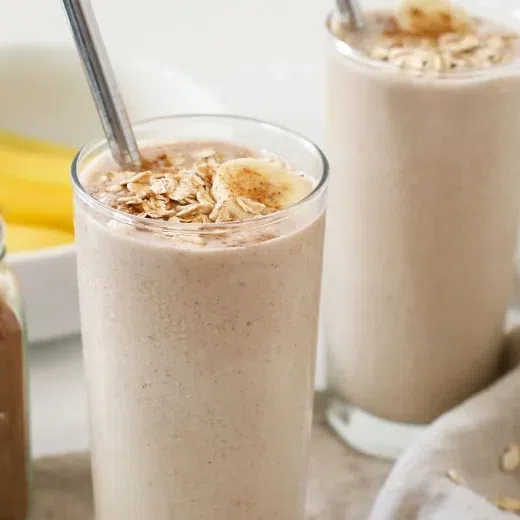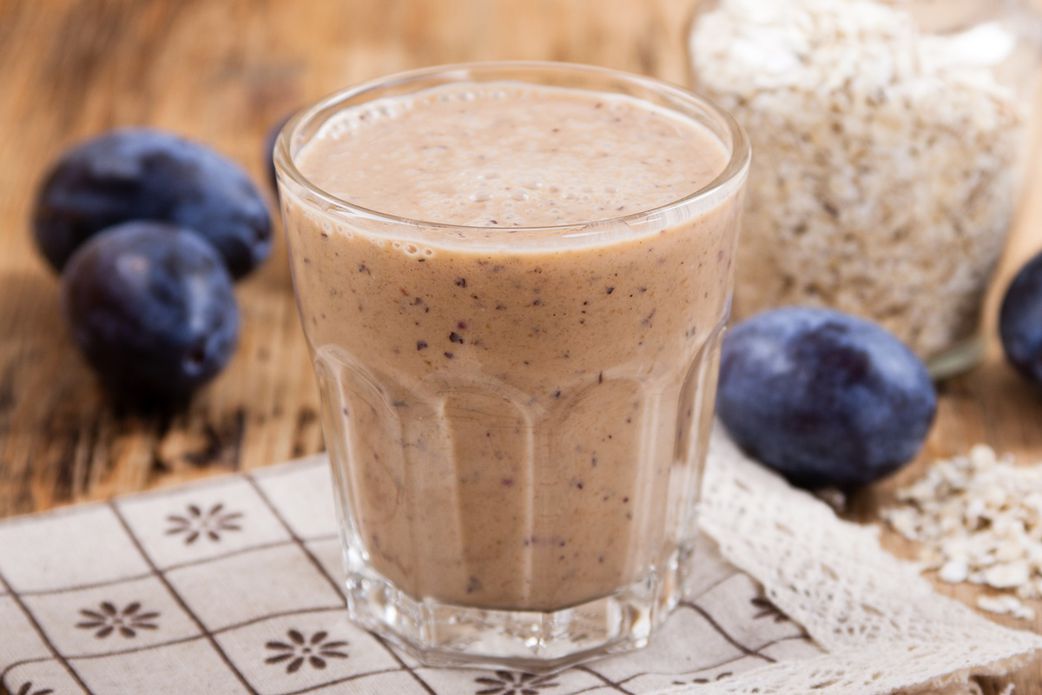If you have ever found yourself glued to the toilet seat, straining longer than usual and questioning your eating habits, you are not alone. Constipation is a common health challenge that affects people across Nigeria, Ghana, and indeed many parts of the world. It often creeps in due to routine changes like travel, increased stress, dietary shifts (for instance, eating too much starchy food), or simply not drinking enough water in our hot West African climate.
Dealing with constipation can make even a normal day feel sluggish. It’s uncomfortable and can take a toll on your mood, energy, and productivity—whether you’re a university student in Lagos, a businessperson in Accra, or anyone with a busy lifestyle. The question many ask is: how can you get relief without relying too much on medications or harsh laxatives?
Interestingly, nutritionists and health experts in Nigeria are increasingly recommending a healthy, delicious solution: smoothies with natural, high-fibre ingredients that support digestive health while providing a refreshing taste for your mornings or mid-day recharge.
Before turning to the pharmacy for synthetic relief, why not try a blend of fruits, veggies, and seeds that promote good gut function? Smoothies offer a gentle approach to ease constipation, improve hydration, and enhance your overall well-being, especially when made from local, readily available produce.
Smoothies pack the double punch of delivering vital fibre and fluids—two essential keys for optimal bowel movement and digestive health. According to Dr. Ijeoma Okafor, a nutritionist in Abuja, “Increasing fibre and staying hydrated is among the safest ways to stimulate bowel movement for both adults and children in our region.” With these benefits in mind, here are five simple and tasty smoothie recipes anyone in Nigeria, Ghana, or anywhere else can adopt for natural relief from constipation.
Explore these five easy, effective, and locally adaptable smoothies designed to support healthy digestion:
1. The Green Smoothie
![Green smoothie [Downshiftology]](https://stag-blogsites.itechnolabs.co.in/wp-content/uploads/2025/09/27dbbc7d-2be3-44d7-ae5e-0072745b17cf-1.jpg)
Green smoothie [Downshiftology]
The green smoothie is a gentle powerhouse for jumpstarting your digestion, packed with fibre-rich greens and fruits that are easy on the stomach. Many West Africans are starting to embrace this blend as a nourishing option at breakfast or as a snack between meals.
Ingredients:
-
1 cup spinach (can substitute with ugu or bitterleaf for a local twist)
-
1 ripe banana
-
1 avocado
-
1 tbsp chia seeds (soak in water for 10 minutes)
-
1 cup of water or coconut milk
-
Ice cubes (optional, for extra chill in Nigeria’s warm weather)
Blend all the ingredients until smooth. Leafy greens like spinach provide ample fibre, bananas supply potassium, while avocados offer healthy fats that encourage smoother movement in your digestive tract. Chia seeds, when soaked, expand in your belly and add bulk to stool, making it easier to pass. According to local dietician Yetunde Balogun, “This blend is particularly effective after a heavy meal of rice or yam, which can slow digestion.”
RECOMMENDED: How to make chia pudding – 3 easy steps
2. The Berry Fibre Booster
![Berry and flaxseed smoothie [Driscoll's]](https://stag-blogsites.itechnolabs.co.in/wp-content/uploads/2025/09/5b73e943-15c5-4925-bbdd-d47da07c7db9-1.jpg)
Berry and flaxseed smoothie [Driscoll’s]
Berries may not be traditional in West African diets, but they can be found at supermarkets and are packed with fibre. Flaxseeds, a more familiar ingredient for many, are natural lubricants for intestinal walls, helping to soften stool and ease constipation.
Ingredients:
-
½ cup mixed berries (strawberries, blueberries, or locally available fruits like black currants or mulberries)
-
½ cup Greek yogurt (contains gut-friendly probiotics)
-
1 tbsp ground flaxseeds
-
1 cup coconut water (for a subtle sweetness and hydration)
-
1 tsp honey (or agave syrup if preferred)
Blend until creamy. Flaxseed delivers healthy fats beneficial for gut lining, and berries—especially raspberries—are among the highest fibre fruits you can enjoy. Greek yogurt is increasing in popularity across Lagos and Accra for its probiotic content, which helps support the gut microbiome and, by extension, regular digestion.
3. The Tropical Smoothie

West Africa is blessed with an abundance of tropical fruits. Pineapple, packed with bromelain enzymes that support digestion, and mango, a fibrous favourite, combine for a powerful duo in this blend.
Ingredients:
-
Fresh mango, peeled and diced
-
Pineapple chunks
-
½ cup orange juice (preferably freshly squeezed for more vitamin C)
-
½ cup coconut milk for creamy texture
Just blend and enjoy! Mangoes and pineapples are available in most Nigerian and Ghanaian markets, providing a cost-effective way to support gut health without relying on imported foods. The orange juice adds a natural acidity, which some local doctors say may further stimulate digestion.
4. The Oatmeal Smoothie

Oats are widely available in local Nigerian supermarkets and are known for their soluble fibre, which helps absorb water and soften stools for easier movement. Adding apples—themselves full of fibre—and cinnamon creates a tasty blend that may also help reduce bloating after heavy meals.
Ingredients:
-
Oats (uncooked, or soaked for a few minutes in water)
-
1 small apple, cored and diced
-
1 tsp cinnamon
-
1 cup almond milk (you may swap for tigernut or soya milk for a West African flavour)
-
1 tsp honey
Blend until you achieve a creamy consistency. In interviews, Lagos-based chef Tunde Michaels highlighted, “This is a wonderful option for people who want a breakfast that is quick, keeps you full, and helps maintain regular digestion.”
5. The Prune & Ginger Smoothie
Prunes are often dubbed nature’s gentle laxative and are gaining traction in Nigerian health conversations. They are effective for relieving constipation, while ginger is a classic remedy for stomach discomfort.

Ingredients:
-
3–4 prunes (soaked in warm water for about 10 minutes)
-
½ inch piece of fresh ginger, peeled
-
½ cup Greek yogurt
-
½ cup water
Blend all ingredients until smooth. Because prunes are quite potent, it’s wise to start with a small serving. Nutritionist Chidera Obi cautions, “Don’t overdo prunes to avoid a sudden urge to use the restroom – moderation is key.”
While adding smoothies rich in local fruits, seeds, and vegetables can significantly help with constipation, don’t forget the basics: stay hydrated and stay active. For many Nigerians and Ghanaians, simply drinking an extra glass of water or taking a brisk walk around your compound or neighbourhood can provide extra support to your digestive system. However, if constipation continues for more than a few days or causes severe pain, it’s important to consult a healthcare professional, as recommended by the Nigerian Medical Association.
RELATED: 5 easy smoothie recipes to help you gain weight
Why Fibre Matters: Local Insights
According to a 2022 report by the West African Health Organisation (WAHO), dietary fibre intake among Nigerians is generally below recommended levels, largely due to increasing consumption of processed, low-fibre foods. Traditional diets, rich in leafy greens, beans, and unrefined grains, had fewer gastrointestinal complaints. As nutrition awareness grows, many are returning to fibre-rich options—smoothies provide a convenient, modern way to meet these needs without sacrificing taste or tradition.
Balancing Traditional and Modern Diets
Many local experts suggest integrating smoothie culture with West African foods—think adding pawpaw (papaya) or soursop for variety, or using moringa leaves or baobab fruit powder for a native boost. Combining these with widely consumed foods like eba or rice helps ensure a balanced intake of both carbohydrates and fibre, promoting a healthier digestive system overall.
Challenges and Common Misconceptions
While smoothies are a great aid, it’s important not to view them as a cure-all. As Dr. Adewale Ojo of University College Hospital, Ibadan, points out, chronic constipation can sometimes signal underlying issues like thyroid problems or digestive tract conditions. “If symptoms are persistent or severe, please seek medical attention and do not rely solely on home remedies,” he advised in a recent interview.
Another frequent misconception is that blending fruits and vegetables always provides the same fibre as eating them whole. In reality, depending on preparation, some fibre can be lost. For maximum benefit, use whole ingredients and avoid straining your smoothie.
African and Global Relevance
Globally, constipation affects millions and is a rising concern due to dietary habits and sedentary lifestyles. But the issue’s local impact is particularly pronounced in urban centers where fast foods and bottled drinks are crowding out traditional meals. By adopting fibre-rich smoothies, West Africans align with global best practices in digestive wellness while keeping local flavours and customs alive.
Takeaway
Blending up a nutrient-packed smoothie is a simple, affordable way to address constipation from your own kitchen. Choose fresh, local produce for budget-friendly, flavourful options, and add exercise and plenty of water for best results. Whether you enjoy your smoothie in bustling Ikeja, tranquil Kumasi, or beyond, your gut will thank you for the upgrade.
Join the Conversation
Have you tried any of these smoothies, or do you have your own constipation-relief recipe? What local fruits or blends work best for you and your family? Share your thoughts in the comments and help build a healthier, happier West Africa—one glass at a time.
We want to hear from you! Have a kitchen hack, family recipe, or food story that Nigerians, Ghanaians, or Africans everywhere should know about? Drop your tasty tales and creative smoothie ideas below.
Interested in getting your story featured or selling your story? Email our team at story@nowahalazone.com.
For food tips, partnerships, or to showcase your own culinary skills, reach us anytime!
Let’s connect—follow us on Facebook, X (Twitter), and Instagram for more healthy food inspiration, wellness tips, and community stories!









